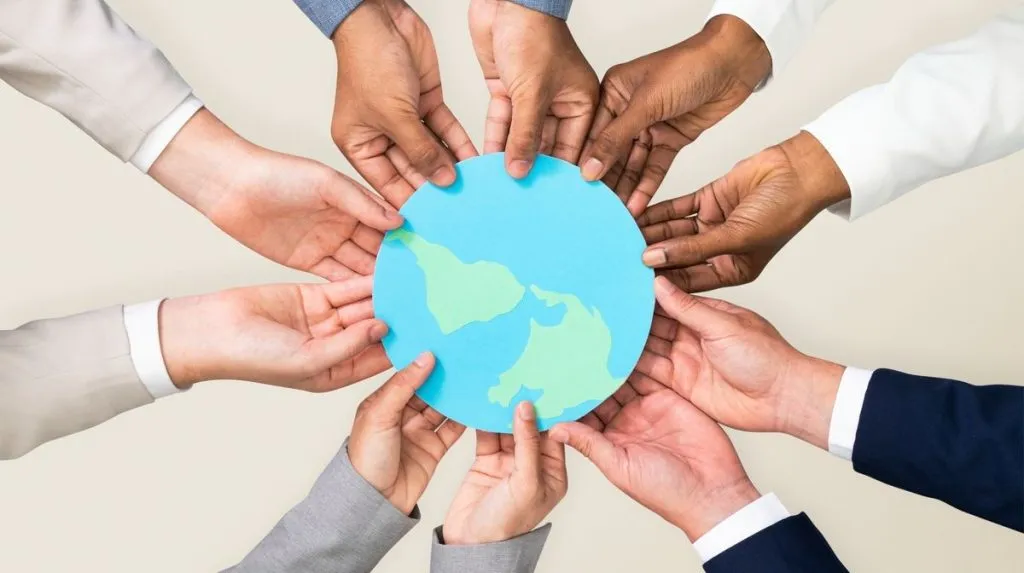Real Friends is one of the most cherished relationships in human life. Among the many people we encounter throughout our lives, some stand out as “real friends.” These individuals form the backbone of our emotional support system, providing companionship, understanding, and genuine care. But what truly defines a real friend, and how can we differentiate them from acquaintances or surface-level connections?
The Characteristics of Real Friends

Real friends are those who offer unwavering support and encouragement. They are not just present during happy times but also stand by us in our most challenging moments. Some key characteristics include:
- Honesty and Trust
A real friend values honesty above all. They tell you the truth, even when it is difficult to hear, because they care about your well-being. Trust is another cornerstone of a genuine friendship. You can confide in them without fear of judgment or betrayal. - Empathy and Understanding
A real friend empathizes with your emotions and tries to understand your perspective. They are not just listeners but active participants in your life, making you feel valued and heard. - Reliability
You can count on real friends to be there when you need them. Whether it’s a small favor or emotional support during a crisis, they consistently show up without hesitation.
The Difference Between Real Friends and Acquaintances
In today’s social media-driven world, the lines between real friends and acquaintances can blur. While acquaintances might be people you interact with casually or occasionally, real friends go deeper. They know your fears, dreams, and vulnerabilities. Unlike acquaintances, they invest time and energy in maintaining a meaningful connection.
How Real Friends Impact Your Mental Health
Having real friends can significantly improve your mental and emotional well-being. They provide a safe space for expressing your feelings and offer a sense of belonging. Studies show that individuals with strong friendships are more resilient to stress, less likely to experience depression, and often have better overall health.
- Emotional Support
Real friends act as emotional anchors, helping you navigate life’s ups and downs. They are a source of comfort and encouragement, ensuring you never feel alone. - Positive Influence
Good friends inspire you to become a better version of yourself. They challenge you to step out of your comfort zone and support your growth without envy or resentment.
Building and Maintaining Real Friendships

Real friendships don’t happen overnight. They require effort, understanding, and mutual respect. Here are some ways to foster meaningful connections:
- Be Authentic
To attract real friends, it’s essential to be genuine. Pretending to be someone you’re not may result in superficial connections. Show your true self and let others appreciate you for who you are. - Communicate Effectively
Open and honest communication is vital in any friendship. Make time for meaningful conversations and actively listen to your friend’s thoughts and feelings. - Show Appreciation
Express gratitude for your friends. Small gestures, like remembering important dates or simply saying thank you, go a long way in strengthening the bond.
Recognizing and Avoiding Toxic Relationships
Not all friendships are healthy. Sometimes, people we consider friends may exhibit toxic behaviors that harm our emotional well-being. It’s important to recognize these signs and distance yourself from relationships that bring negativity.
- Manipulation or Control
A toxic friend might try to manipulate or control your decisions. They may guilt you into doing things you’re uncomfortable with, undermining your confidence. - Lack of Reciprocity
Friendship is a two-way street. If you find yourself constantly giving without receiving any support or acknowledgment in return, it may be time to reassess the relationship. - Excessive Criticism
Constructive criticism is healthy, but a toxic friend may excessively criticize you in ways that erode your self-esteem. Real friends uplift you rather than tear you down.
Real Friendships in the Digital Age

The advent of social media has redefined the way we form and maintain friendships. While digital platforms make it easier to stay connected, they also present challenges in building authentic relationships.
- Quality Over Quantity
It’s easy to get caught up in the number of online friends or followers, but real friendship is about quality, not quantity. A small circle of genuine friends is far more fulfilling than a large group of superficial connections. - Face-to-Face Interaction
Despite the convenience of digital communication, face-to-face interactions remain crucial for deepening bonds. Make an effort to meet your friends in person whenever possible.
The Role of Real Friends in Personal Growth
Real friends play an integral role in helping you grow as an individual. They offer constructive feedback, motivate you to pursue your goals, and celebrate your achievements without jealousy.
- Encouraging Self-Reflection
Real friends challenge you to reflect on your actions and decisions. They help you recognize your strengths and areas for improvement, contributing to your personal development. - Providing Perspective
Sometimes, we get so caught up in our problems that we lose sight of the bigger picture. A real friend provides a fresh perspective, helping you approach situations with clarity and optimism.
Celebrating Real Friendships
Real friendships deserve to be celebrated. Whether it’s through a heartfelt conversation, a thoughtful gesture, or simply spending quality time together, acknowledging the importance of latoto these relationships is essential.
- Create Memories
Shared experiences strengthen bonds. Plan activities that you both enjoy, whether it’s a casual coffee date, a weekend getaway, or pursuing a hobby together. - Express Gratitude
Never underestimate the power of a sincere thank-you. Let your friends know how much they mean to you, not just on special occasions but in everyday moments.
The Lifelong Value of Real Friends
As we navigate different phases of life, the value of real friends becomes increasingly evident. They are the constants in an ever-changing world, providing stability, joy, and unconditional support. Investing in these relationships is one of the most rewarding endeavors you can undertake.
In conclusion, real friends are more than just companions—they are essential to our happiness and well-being. Cherish them, nurture your connections, and strive to be the kind of friend you wish to have. In doing so, you’ll create a network of love and support that will enrich your life for years to come.


